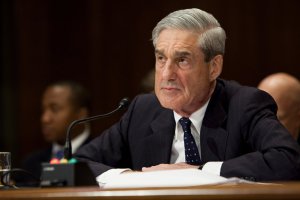The “Friday night news dump” of things the White House wants to delay media scrutiny of until the following week has been raised to an art form in the Trump administration. It has become a Friday night “wheel of fortune” to see which member of the administration is being fired or replaced this Friday.
Prior to Friday night, the breaking news story was retired four-star Army Gen. Barry McCaffrey slamming President Donald Trump as a “serious threat to U.S. national security” for his failure to protect the nation from “active Russian attacks.” McCaffrey accused Trump in a tweet Friday of being “under the sway” of Russian President Vladimir Putin” for some “unknown reason.”
That lede got buried when Confederate Attorney General Jefferson Beauregard Sessions III, who is supposed to be recused from anything to do with the Russia investigation, fired former FBI deputy director Andrew McCabe only 48 hours before he was set to retire, something President Trump had foreshadowed he would do out of spite back in December.
Deputy Director McCabe was in charge of the FBI’s Russia investigation for a period of time, and he is a key fact witness in the firing of FBI Director James Comey and the obstruction of justice portion of the investigation by Special Counsel Robert Mueller. Sessions has clearly violated his recusal, signaling his willingness to do it again for others at the request of “Dear Leader.”
Sessions short-circuited the normal review process in federal personnel matters in order to carry out the petty vindictiveness of “Dear Leader.” He relied on an Inspector General report and a FBI report that have not yet been made public. Andrew McCabe, a Target of Trump’s F.B.I. Scorn, Is Fired Over Candor Questions:
Andrew G. McCabe, the former F.B.I. deputy director and a frequent target of President Trump’s scorn, was fired Friday after Attorney General Jeff Sessions rejected an appeal that would have let him retire this weekend.
Mr. McCabe is accused in a yet-to-be-released internal report of failing to be forthcoming about a conversation he authorized between F.B.I. officials and a journalist.
In a statement released late Friday, Mr. Sessions said that Mr. McCabe had shown a lack of candor under oath on multiple occasions.
“The F.B.I. expects every employee to adhere to the highest standards of honesty, integrity and accountability,” he said. “I have terminated the employment of Andrew McCabe effective immediately.”



